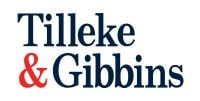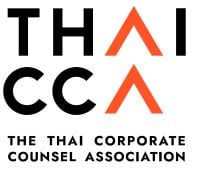

Head of legal | CP Axtra







Nichayada Ragkhitwetsagul
Head of legal | CP Axtra
What are the most significant cases or transactions that you have recently been involved in?
One of the transactions my team handled was the acquisition of an 80% share in a premium food solutions provider based in Hong Kong, Singapore, and the UAE. This food service business encompasses food production, distribution, and culinary expertise. It was a challenging and interesting deal, as it represents a new line of business for us and expands our operations into new jurisdictions.
My team was involved from the very early stages, allowing us to evaluate the business feasibility study and work alongside financial advisors to structure the transaction. The negotiation for sale and purchase agreement and shareholder agreement were complex, considering the business’s extensive portfolio of over 100 brands sourced globally to serve a diverse clientele, including top hotels and restaurants, gourmet shops, food caterers, and airline caterers. Additionally, it has also produced its own house brand products. The deal was successfully closed, and we have since expanded this business significantly. We now have a presence in 16 cities across 7 countries.
How do you motivate and manage your legal team well?
I believe that effectively motivating and managing a legal team requires a combination of leadership skills, communication strategies, and an understanding of each individual team member. My management approach starts with setting clear goals and expectations. I ensure that team’s objectives, priorities, and performance expectations are well-communicated. It is important to have a clear “north star”, which may not necessarily be me as a team leader, but can be a deadline, standard, or target to guide our efforts.
Once everyone is aligned on the bigger picture, I empower team members by delegating tasks according to their strengths and expertise. This, in turn, boosts team confidence and commitment. Through my experience, I have observed that when team members take ownership of their tasks, they are naturally driven to perform better, tackle challenges, and find creative solutions.
During our work, I prioritise open communication, fostering an environment where team members can learn about each other’s strengths and abilities, share ideas, voice concerns, and receive mutual support. This promotes a culture of teamwork and collaboration. This extends to where I also encouraged team-building activities such as lunch gathering or weekend trip to promote camaraderie and keep the team connected. Collaborating outside of regular tasks allows team members to bond in unique ways, get to know each other on a personal level, and become more motivated to collaborate during work hours.
Finally, leading by example is essential. I consistently demonstrate the values and behaviours I expect from my team. As a team leader, I always work alongside my team and offer support wherever needed to complete task. This helps build trust and a sense of unity.
In the realm of motivating and managing a legal team effectively, there is no shortcut. It is a multifaceted endeavour which requires various skills and sustained effort. However, by embracing these principles, I believe it is possible to cultivate a motivated, high-performing legal team capable of achieving outstanding results.
How do you see the general counsel role evolving in Thailand over the next five-ten years?
Over the next decade, Thailand’s general counsel landscape will transcend its traditional confines, becoming an integral part of strategic decision-making. Moving away from their traditional role as legal experts to strategic partners, modern general counsel needs to blend legal acumen with business expertise aiming to provide comprehensive counsel to the C-Suite executives and help making decisions that safeguard the business from legal risks while fostering growth.
Legal work will also become more complex and technologically intensive. The role is expected to evolve significantly in response to various trends and challenges. Digital transformation will persist, necessitating a proactive approach to regulatory changes, especially in areas like personal data protection, cybersecurity, and digital transactions. Furthermore, legal compliance and risk management will expand further, encompassing growing regulations that not only govern normal business operation but also emphasise environmental, social, and governance (ESG) criteria. General counsel, especially those in publicly listed companies, will bear the responsibility of ensuring their companies adhere to high ethical standards and sustainability practices, thereby meeting stakeholder expectations and regulatory requirements.
In summary, the role of the general counsel in Thailand is poised to become more strategic and multifaceted, demanding a fusion of legal expertise, business acumen, and leadership prowess. Adaptability to these evolving demands will be pivotal in navigating the complexities of the modern business environment in the coming decade.
Head of legal | Osotspa Public Company
Director, legal | Siam Makro